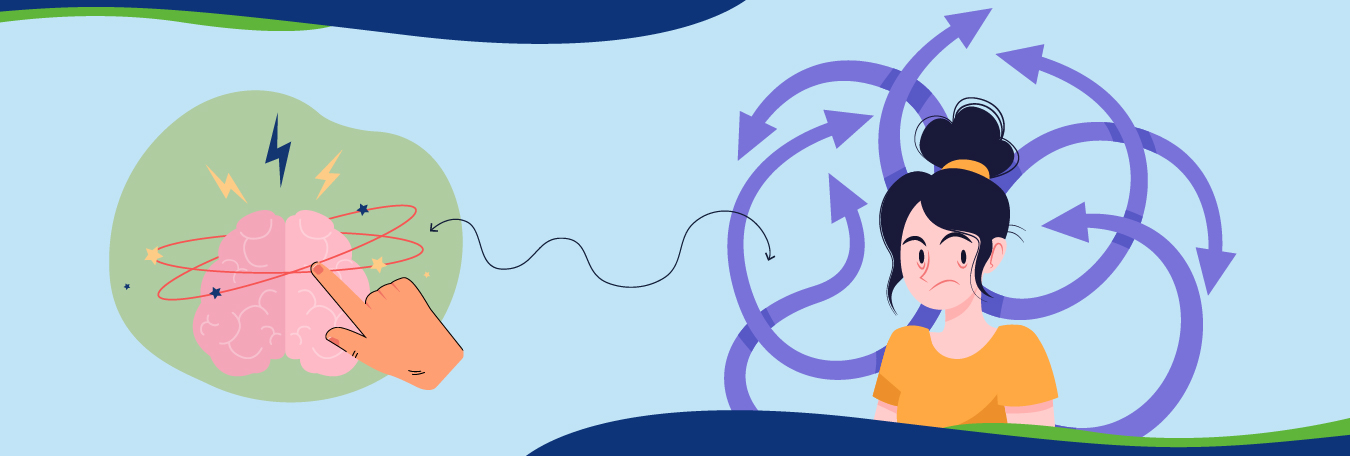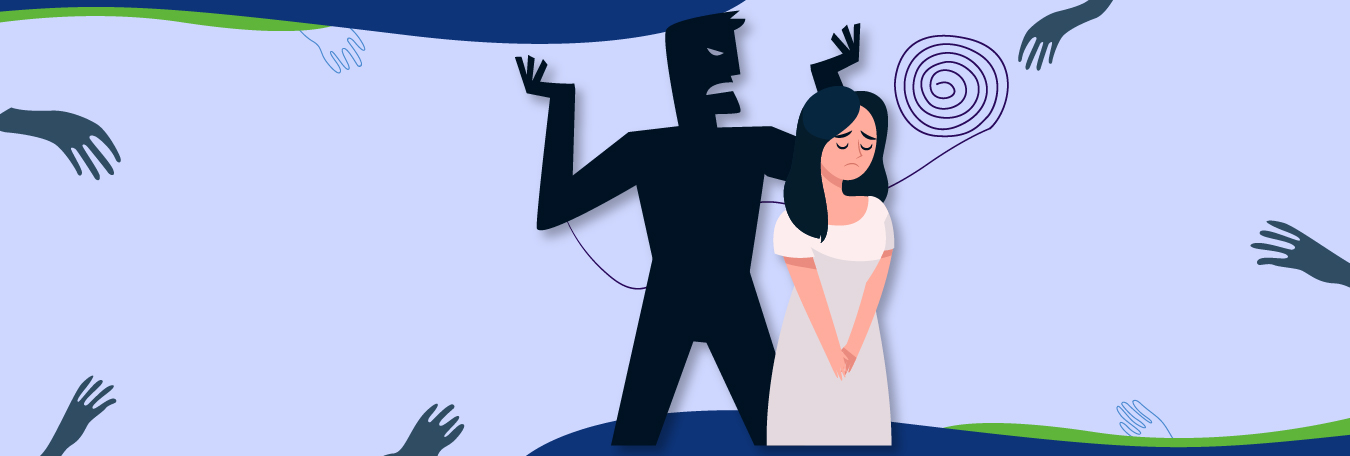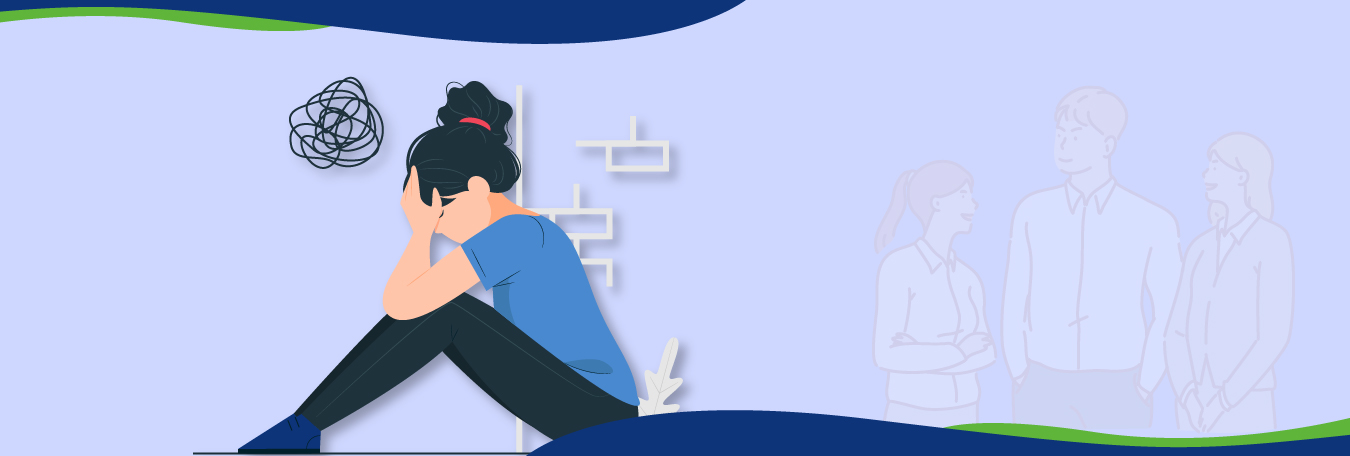Have you ever gotten stuck in a game, a book reading, or a gardening task that you totally forget about everything else? You are not aware that time is flying. When the state ends, you suddenly look up and realize that hours have gone by, and it can be a really big deal.
The brain with ADHD works differently. Instead of little attention, you sometimes have a lot of it. You have too much that it can be hard to control where time goes by. It is like you have a superpower that you have not learned to use yet. When you get stuck in a really interesting task. Your brain gets stuck to it. This is the definition of hyperfixation.
Hyperfixation is not a problem to be worried about. It is a sign that your brain has found something exciting to do. But it can be harmful and tricky because it can make you forget about your surroundings, environment, be careless about your duties, eating, and sleeping. It often feels like a person being in “a trance” or an “intense dream”.
It is like shutting down your mind for just one thing for some time and then coming back to normal.
The good news is that you can learn to recognize your hyperfixation state and can find strategies to keep it in check.
What Is ADHD & Hyperfixation?
Hyperfixation is all about an intense, time-consuming, and prolonged state of mind that focuses more on a specific activity, topic, and interests that do not usually happen.

Read More: 10 Tips To Maintain Work Life Balance
Most commonly, it is related to a neurodivergent condition of the mind, like in ADHD, but it can also be a condition in autism, or in a person who is under great stress.
Let’s learn more about it.
Think you are in a state of reading a book. The scene is so intense that you are completely lost in it and forget your time. Even if you forget about lunch and your mom’s voice calling for dinner. And when that chapter or climax ends, you come into your present state and reality and realize your time has flown by. You even feel hunger; this is the hyperfixation’s meaning.
Hyperfixation symptoms can happen with things that you really enjoy. It could be a video game, a TV serial, a book, or a person you are talking to on the phone.
When you are in a state of hyperfixation, you might not notice the time passing. When you finally stop, you may feel a little confused, like you have just woken up from a dream.
This situation is the opposite of people with ADHD. People who are experiencing ADHD can have stronger and more intense focus than people who don’t have ADHD.
This is because the ADHD brain always looks for things that are of interest and fun. It can be like an ADHD fixation.
Read More: Mental Health Tips For Physical And Emotional Well-Being
Definition of ADHD Hyperfixation
Hyperfixation is well-known in the ADHD community, but it is not an official diagnostic criterion. Hyperfixation is often linked to the ADHD brain’s reward-based dopamine system. When an activity is highly stimulating or rewarding, it can trigger a dopamine release, which drives a person to become stuck in that activity to maintain the feeling of satisfaction.
Hyperfixation With Other Mental Conditions
Why do people hyperfixate? The answer is that anyone can get lost in a good book or fun activity, but for some people, it happens often. Hyperfixation can be a part of different conditions or feelings.
ADHD
The human brain contains a chemical that is called dopamine. It helps you feel happy and motivated for tasks. The ADHD brain has lower levels of this brain chemical.
Autism
For people who are experiencing autism, intense interests can be a way to find joy and feel calm. Something that they love can give them a sense of comfort and security.
Anxiety
Sometimes when people feel worried and are scared, they focus on a hobby or an interest that can give them a temporary escape. This is a therapy for them. You can say an intentional state.
The same condition is deliberately created in sorrows. When you are sad, you want an escape from that feeling and go into a state of forgetfulness.
So, to control this hyperfixation state, it is good to talk to a doctor or a professional psychiatrist. They can help you understand what is causing it.
Read More: ADHD Symptoms in Women and Female Teenagers
How to Manage Hyperfixation?
You can learn to control your hyperfixation and make it work for you. Here are some simple steps you can take.
Strategies For Managing Hyperfixation
Cognitive and Emotional Approaches
All this. Your internal thoughts and emotional regulations can play a major role. You can practice mindfulness. Throughout the day, take a moment to raise your awareness about your mental state. This can take 10-20 minutes of meditation to two minutes of deep breathing. Meditation can help improve focus and decision-making.
Address Resistance to Challenges
You can learn about any ways to resist challenges that come due to self-doubt, fear, or procrastination, as this can keep you stuck on easier, high-reward activities. For neurotypical individuals, simple awareness of this resistance can make it easier to confront.

Join Support Groups
Therapy sessions and support groups can provide a space to share your experiences, develop new techniques, and combat feelings of isolation.
Read More: Ultimate Guide for Ring of Fire ADHD: Symptoms, Causes, and Treatment
Ask for Help
You don’t have to figure this out by yourself. Your talk to a professional can make a big difference. An ADHD psychiatrist can help you learn new ways to manage your time and stay focused on what’s important, and manage to be present in a state.
A type of talk therapy called Cognitive behavioral therapy (CBT) can also help you learn how to handle your focus and other ADHD related feelings.
You can also find groups of people who have ADHD. It is nice to talk to others who understand what you are going through. You can share tips and feel supported.
The experienced psychiatrists who know the symptoms of huperfixation can help you identify underlying issues and develop healthier coping mechanisms.
Remember, hyperfixation is a sign of a creative and passionate brain. When you learn how to manage it, you can use that amazing focus to do great things.
Do you want to get the help you need? Our team of experts at Iebehavioralgroup.com is here to support you. We can help you understand and manage your ADHD. Contact us today to have a happier and normal life.




